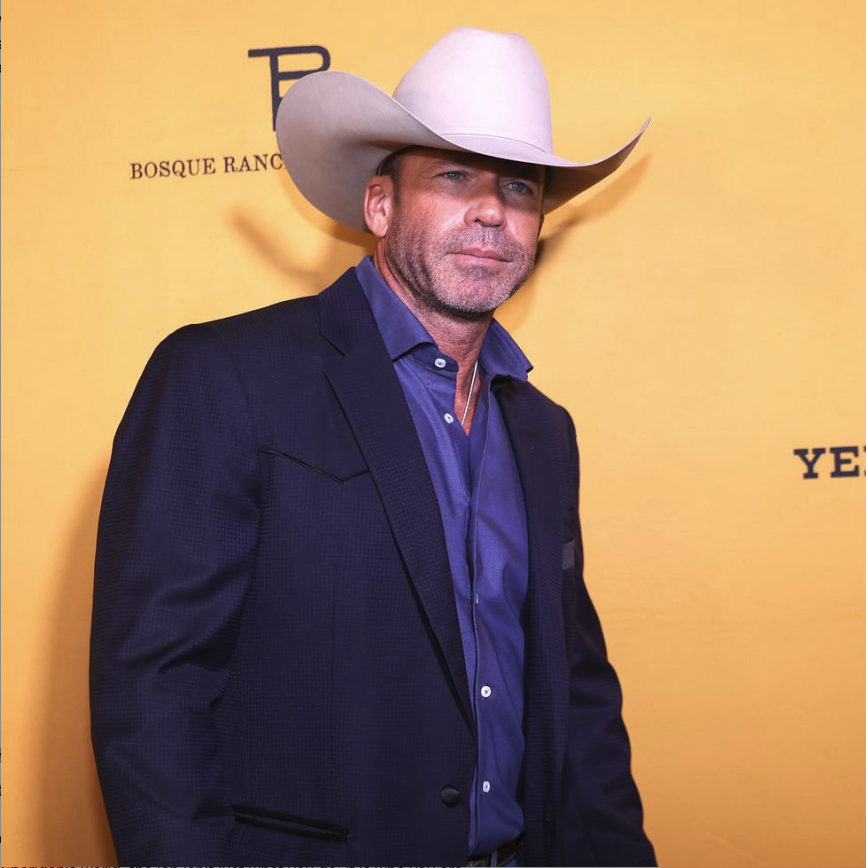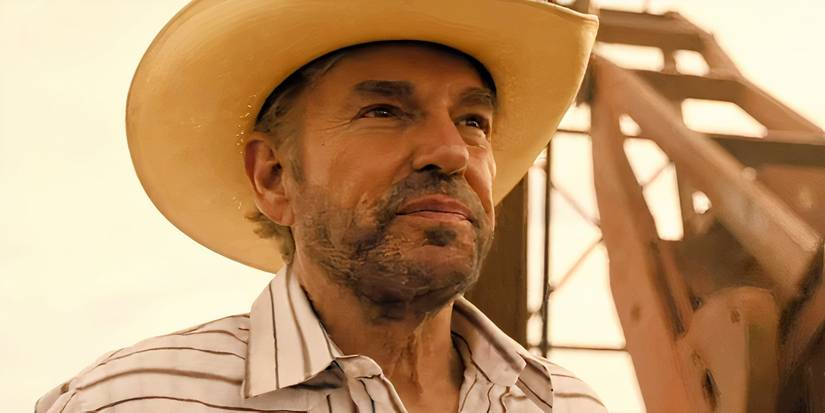In the sprawling landscape of contemporary television, few creators have carved out a niche as distinct, lucrative, and culturally resonant as Taylor Sheridan. From the snow-capped peaks of Wind River to the sprawling pastures of Yellowstone, Sheridan has effectively rebranded the American West, stripping away the romanticized nostalgia of the John Wayne era and replacing it with a gritty, hyper-realist examination of power, land, and legacy.
With Landman, Sheridan turns his lens away from the cattle rancher and toward the roughneck, diving headfirst into the chaotic, high-stakes world of the West Texas oil boom. This isn't merely a spinoff or a thematic successor; it is the industrial evolution of his "Modern Frontier" thesis.
This article deconstructs the creative vision behind Landman, exploring how Sheridan transforms economic data into human drama, why he is obsessed with occupational authenticity, and how he is reshaping the narrative of the American Dream.
From Audio Waves to Oil Rigs: The Genesis of 'Landman'
Unlike Yellowstone, which was born from Sheridan's own internal musings on land ownership, Landman has its roots in journalistic non-fiction. The series is a direct adaptation of the critically acclaimed podcast "Boomtown," produced by Texas Monthly and Imperative Entertainment.

The "Boomtown" podcast provided the journalistic foundation for Landman's authentic portrayal of the West Texas oil boom
The "Boomtown" Connection
Hosted by Christian Wallace (who serves as co-creator and executive producer on Landman), "Boomtown" chronicled the 2019 oil boom in the Permian Basin. It didn't just look at the stock prices; it looked at the strippers, the roughnecks, the billionaires, and the teachers who couldn't afford rent because oil money had inflated the local economy.
✅ Verified Insight: Sheridan's decision to adapt "Boomtown" signals a shift in his creative process. He is moving from purely original screenplays to adapting journalistic sociology. He recognized that the podcast captured a specific "gold rush" hysteria that fiction struggles to invent.
By bringing Christian Wallace into the writers' room, Sheridan ensured that the DNA of the show remained tethered to reality. The transition from podcast to screen required expanding the narrative scope—turning anecdotal interviews into the serialized saga of Tommy Norris (Billy Bob Thornton)—but the core ethos remains: The boom eats everything.
The Philosophy of Economic Storytelling
If there is a unifying theory to the "Sheridan-verse," it is Economic Storytelling. While many dramas focus on emotional or romantic conflicts, Sheridan's characters are almost always defined by how they make their living and the economic pressures that squeeze them.
In Sheridan's world, the job isn't just what you do; it is who you are.
- In Sicario: The economics of the drug trade define the morality of the border.
- In Yellowstone: The economics of property tax and inheritance tax drive the violence.
- In Landman: The economics of extraction define the value of human life.
"The Rent We Pay to Nature"
Sheridan posits that civilization is a thin veneer over a brutal struggle for resources. In Landman, this philosophy is pushed to its extreme. The characters are not fighting for heritage (like the Duttons); they are fighting for liquidity.
Tommy Norris, the titular landman, is the physical embodiment of this friction. His job is to mediate between the raw, unyielding force of nature (the oil) and the complex, often corrupt machinery of capitalism (the law/the bank). Sheridan uses Tommy to explore the idea that modern society is fueled by a dirty, dangerous business that we all rely on but refuse to look at.
"The oil industry isn't just about extraction – it's about families, communities, and the complex relationship between economic necessity and environmental responsibility. We want the lights to come on, but we don't want to see how the fuel gets made."
— Analysis of Sheridan's Narrative Themes
Occupational Authenticity: The "Cowboy Camp" Ethos
Taylor Sheridan is notorious for his obsession with "occupational authenticity." For Yellowstone, he sent actors to "Cowboy Camp" to ensure they could ride horses and rope cattle convincingly. For Landman, the requirement was different but no less rigorous: Industrial Realism.

Sheridan's commitment to occupational authenticity means showing the real dangers and physical demands of oil industry work
The Language of the Oil Patch
Viewers of Landman are immediately immersed in a vernacular that is deliberately unexplained. Terms like "wireline," "spudding," "wildcatting," and "mineral rights" are thrown around with casual speed. Sheridan trusts his audience to keep up, or at least to be mesmerized by the competency of the characters.
This linguistic precision serves two purposes:
- Immersion: It sells the illusion that we are flies on the wall of a real industry.
- Authority: It establishes Tommy Norris as a master of his domain. When Billy Bob Thornton speaks the jargon, he isn't acting; he is inhabiting the role of a veteran crisis manager.
Danger as a Character
In Landman, the machinery is a monster. Sheridan films the oil rigs not as static industrial objects, but as breathing, dangerous beasts. The creative vision emphasizes the physical peril of the job—the high pressure, the heavy steel, the explosive gases.
By grounding the drama in the physical reality of the work, Sheridan raises the stakes. A mistake in a soap opera leads to a breakup; a mistake in Landman leads to a blowout and a body count.
Visual Aesthetics: Dust, Rust, and Neon
The visual language of Landman stands in stark contrast to the lush, painterly cinematography of Yellowstone. If Yellowstone is a romantic painting of the American West, Landman is a gritty, over-exposed photograph found in a dusty glovebox.
The Palette of the Permian
- Yellowstone: Cool blues, deep greens, snowy whites. Represents preservation and nature.
- Landman: Scorched oranges, dusty browns, industrial greys, and neon lights cutting through black nights. Represents extraction and industry.
Sheridan and his cinematographers lean into the harshness of the West Texas landscape. It is flat, dry, and unrelenting. The beauty here is not in the scenery, but in the scale of the human endeavor to conquer it. The visual direction emphasizes the isolation of the oil camps and the surreal juxtaposition of high-tech drilling equipment against the ancient, empty desert.
At night, the show transforms. The flares from the oil stacks create a hellscape aesthetic—a visual metaphor for the moral ambiguity of the industry. It is beautiful, but it is burning.

The nighttime oil field flares create a "hellscape aesthetic" that visualizes the moral complexity of America's energy dependence
The Crisis of Masculinity: Fathers, Sons, and Legacy
No Taylor Sheridan project is complete without a deep interrogation of American masculinity. Landman Season 2 elevates this theme through the introduction of Sam Elliott as T.L. Norris, creating a generational triumvirate that serves as the show's emotional spine.

Sam Elliott's T.L. Norris completes the three-generational saga of the Norris men, embodying the classic Western male archetype facing industrial modernization
The Three Generations of Norris Men
- T.L. Norris (The Past): Played by Sam Elliott, he represents the old guard—the wildcatters who built the industry with grit and intuition. His physical frailty (wheelchair-bound) contrasts with his legendary status, symbolizing the dying breed of the classic Western male.
- Tommy Norris (The Present): Billy Bob Thornton's character is the bridge. He carries the trauma of his father's era but operates in the corporate reality of the modern world. He is a "fixer," constantly cleaning up messes, burdened by the responsibility of keeping the machinery running.
- Cooper Norris (The Future): Jacob Lofland's character represents the seduction of the boom. He is young, ambitious, and naive. His storyline—striking oil early and immediately facing the consequences—is a parable about the corrupting nature of unearned success.
Sheridan uses these three men to explore how the definition of "being a man" changes when the frontier closes and the corporation takes over. The emotional reticence, the inability to express love except through work, and the cycle of "sins of the father" are central to the creative vision.
The "Sheridan Woman": Archetypes and Controversies
Sheridan's writing of female characters has always been a point of contention and fascination. He tends to write women who are "tougher than the men" (Beth Dutton in Yellowstone, Emily Blunt in Sicario), often creating polarizing figures.
In Landman, this dichotomy is on full display.
Cami Miller: The Power Player
Demi Moore's character, Cami Miller, is the spiritual successor to the "Sheridan Power Woman." Following the death of her husband, she refuses to be a victim. Her "Serengeti speech" in Season 2 is classic Sheridan: aggressive, animalistic metaphors used to assert dominance in a male-dominated room. Through Cami, Sheridan explores female ambition in a hyper-masculine space.
The Domestic Foil: Angela and Ainsley
Conversely, the characters of Angela (Ali Larter) and Ainsley (Michelle Randolph) have drawn significant criticism for being written as chaotic, hyper-sexualized, or shrill.
Critical Analysis: This reveals a blind spot in Sheridan's creative vision. While he excels at writing women in professional contexts (warriors, CEOs, spies), he often struggles to write women in domestic contexts without resorting to soap opera tropes. The "Jerry Springer-esque" dinner scenes in Landman suggest that Sheridan views the domestic sphere as a source of chaos that threatens the order of the professional sphere.
The Sheridan-verse: Cultural Impact and the "Red State" Myth
Landman cements Taylor Sheridan's status as the primary chronicler of "Flyover Country." Critics often label his shows as "Red State TV," but this is a simplification of his creative vision.
Sheridan is not writing for a political party; he is writing for a class. He writes for the people who do the dirty jobs that power the coastal cities. His creative vision is rooted in a populism that respects competence and disdains bureaucracy.
- The Anti-Hero of Industry: In most Hollywood productions, the oil executive is the villain. In Landman, he is the protagonist. Sheridan forces the audience to empathize with the people usually cast as the bad guys in environmental narratives.
- The Modern Western: Landman proves that the Western genre isn't about horses; it's about the frontier spirit. The oil patch is the last place in America where a person can show up with nothing, work hard, and become a millionaire (or die trying). That mythos is the engine of the Sheridan-verse.
Conclusion: The Dust Settles
The creative vision behind Landman is a testament to Taylor Sheridan's evolution as an auteur. He has taken the raw, unpolished reality of the West Texas oil fields—first captured in the Boomtown podcast—and refined it into a high-octane drama that asks uncomfortable questions about the price of prosperity.
By blending meticulous occupational authenticity with high Greek tragedy (fathers, sons, greed, death), Sheridan has created a show that is simultaneously an education in energy economics and a character study of American ambition.
While the show is not without its flaws—particularly in its handling of domestic dynamics—its core strength lies in its refusal to look away. Landman demands that we look at the dust, the grease, and the blood, and acknowledge that this is the fuel that keeps our world spinning.
Key Takeaways from Sheridan's Creative Vision
- Source Material Matters: Adapting Boomtown provided a layer of journalistic truth that fiction alone cannot achieve.
- Job = Identity: Characters are defined by their utility and their profession.
- Visual Storytelling: The landscape is a character, often an antagonist.
- Generational Weight: The story is never just about the individual; it's about what they inherited and what they will leave behind.
Analysis based on episodes, production interviews, and Sheridan's filmography through Season 2



